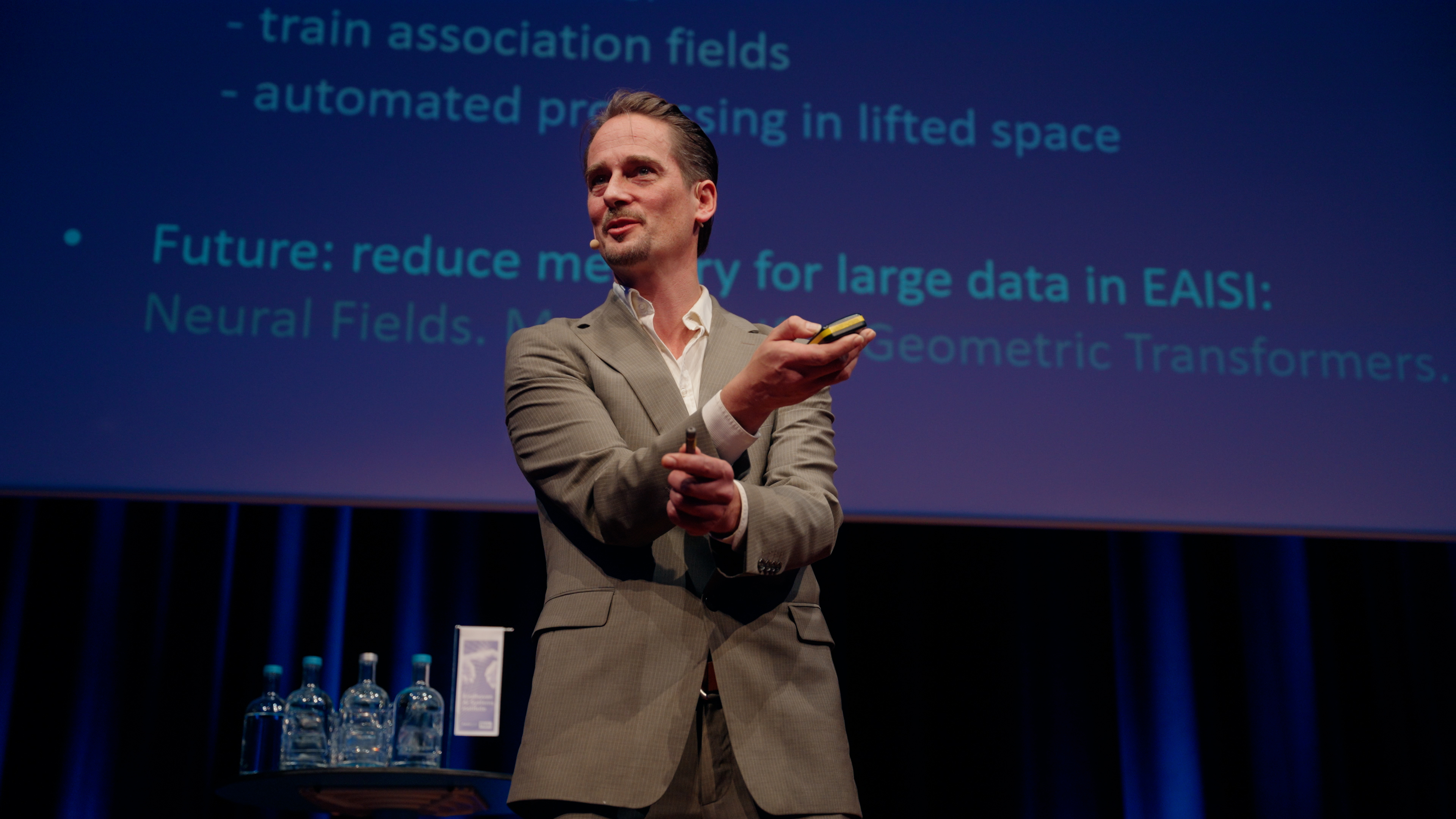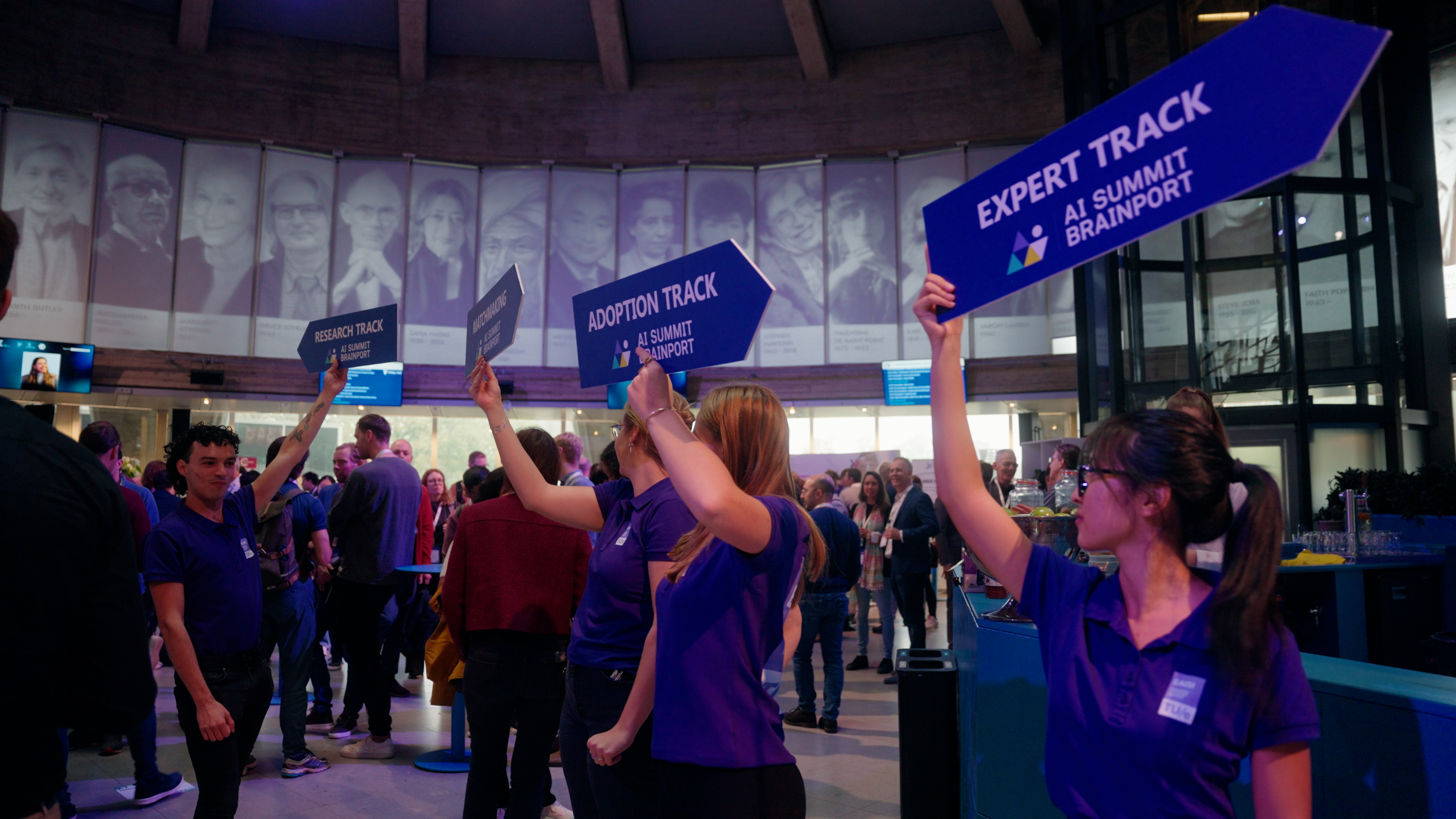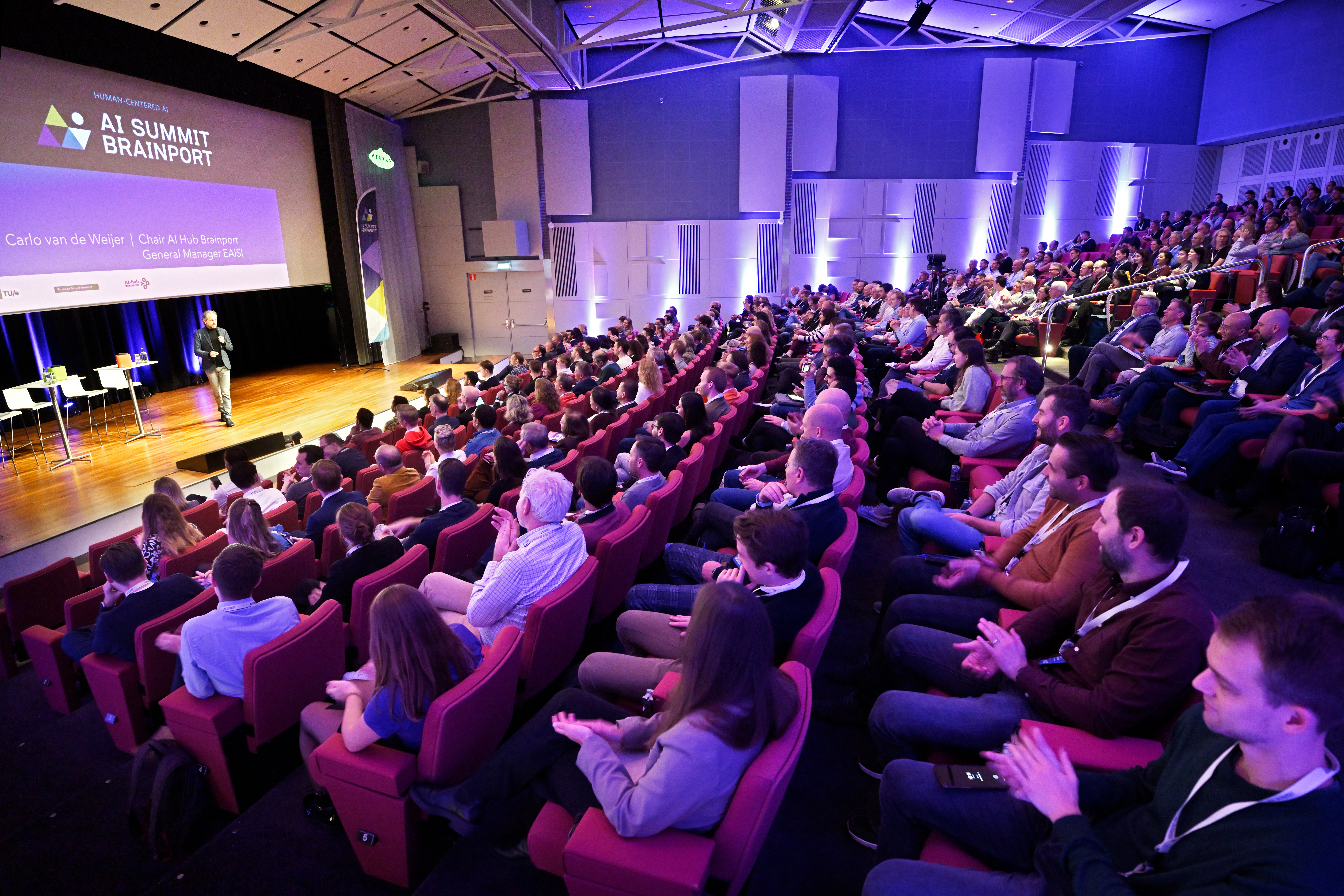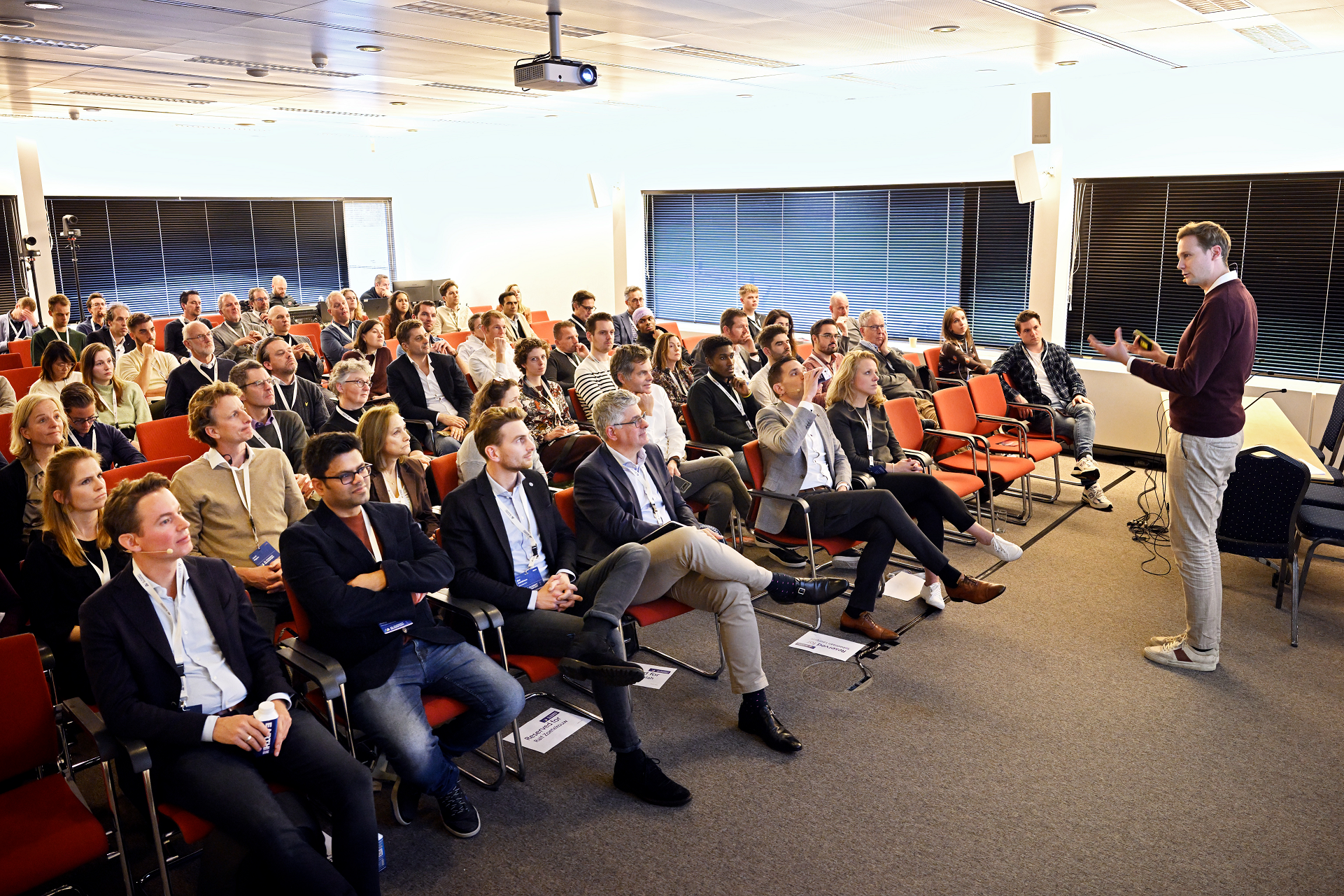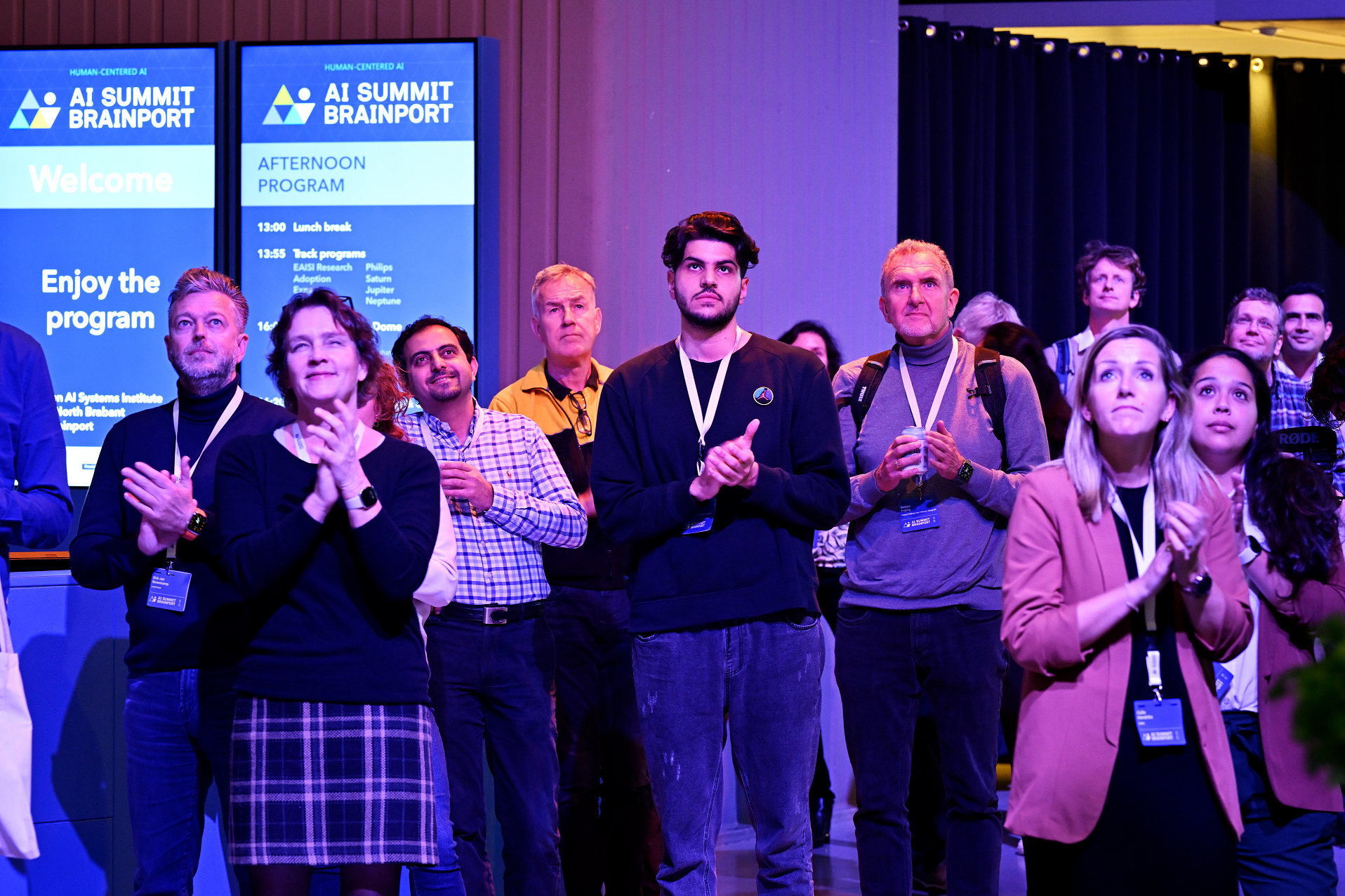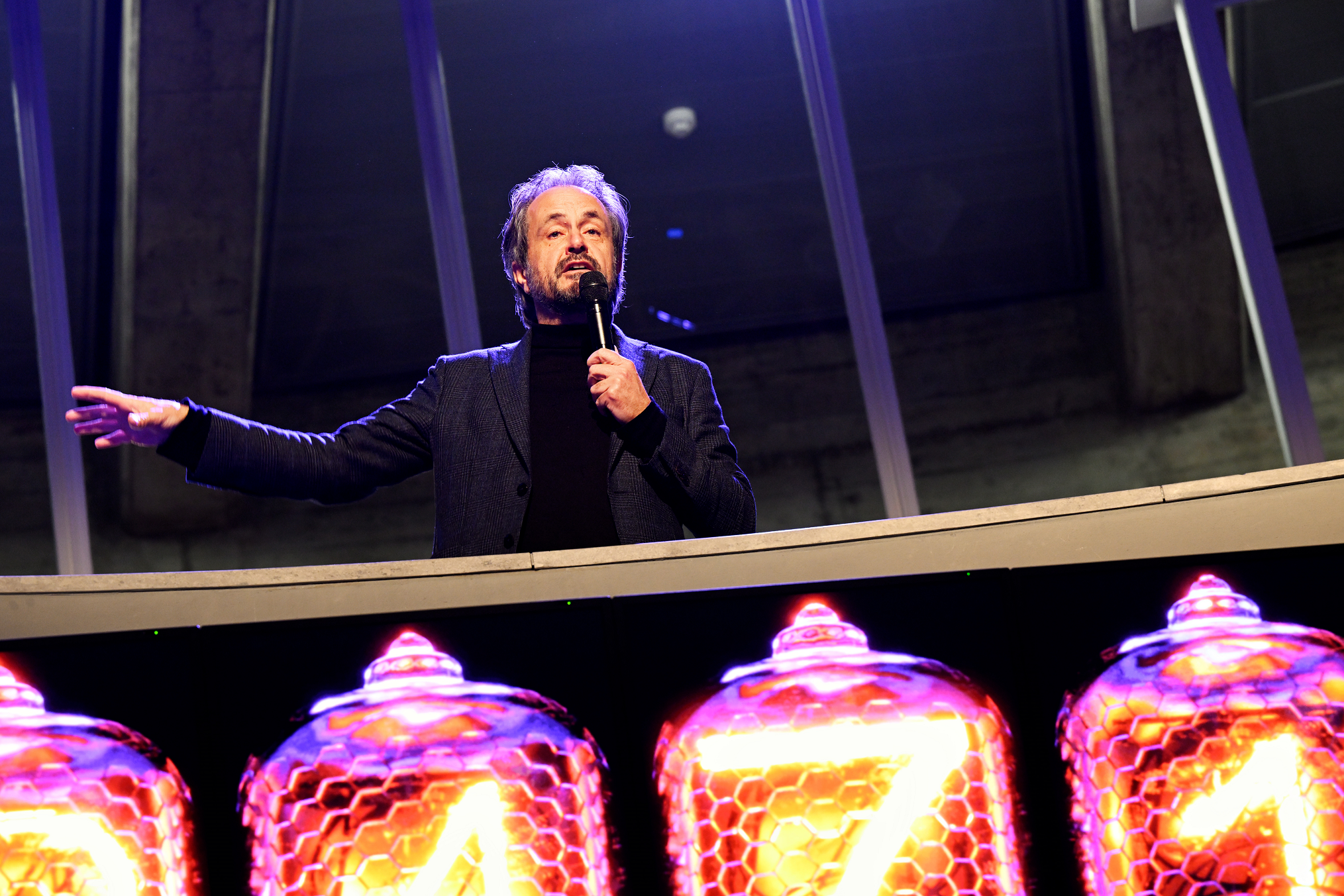WELCOME
The AI Summit Brainport 2026 will explore this year’s critical question:
“AI at work. Use it or lose it?” How do we ensure AI is trustworthy, ethical, and truly supportive in the workplace of today and tomorrow?
The AI Summit Brainport 2026 will take place on Thursday, November 12, at the Evoluon in Eindhoven.
Expect inspiring sessions with leading experts on explainable AI, ethics, security, and responsible deployment and practical insights for applying AI safely and effectively across industries.
Curious about the energy, insights, and collaboration that define the summit? Check out the aftermovie from last year’s edition (below) and stay informed of what’s ahead in 2026.
Days until the AI Summit Brainport 2026

Carlo van de Weijer
General Manager EAISI TU/e and Chair Brainport AI Hub
Carlo will lead the plenary session of the program.
View profile on TU/e website
Carlo will lead the plenary session of the program.
View profile on TU/e website
Organizing partners



